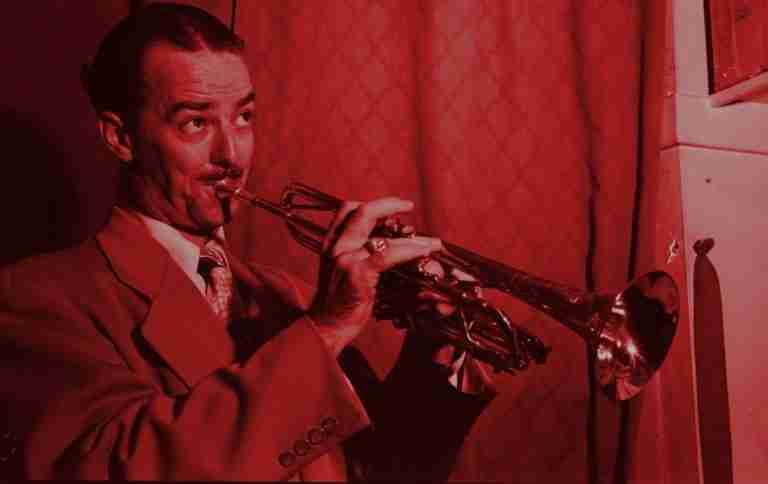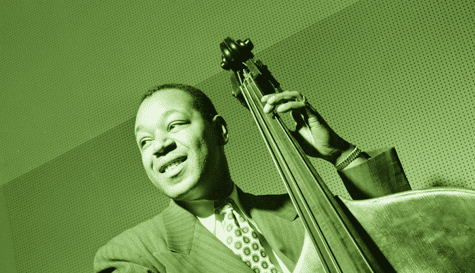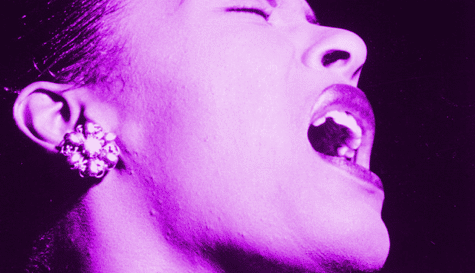It’s been a while since you’ve picked up your horn, sat down to the piano, or even thought about practicing. As time goes by, it gets more and more difficult to get that spark going again. Ok, time to get out of this rut and do something about it. Here are 27 ideas to get you inspired to play and practice again.
Pick One. Do it.
Yes, that’s it. Just one at a time. Then, when you feel a sense of accomplishment and have begun to improve again, pick another.
Here we go:
1.) Find new things to listen to
Everything you play right now is largely based upon what you’ve listened to up to this point. Whether you’ve studied it or just put it on in the background, everything you listen to affects what you play and how you conceptualize music.
Finding new music to listen to is easier today than it’s ever been. My father tells me all the time that the reason he has certain records is because when he went down to the record shop, that’s all there was! He had a few dozen jazz albums to choose from, so that’s what he bought. Lucky for him, he’s got some great recordings in there.
Go on Spotify. Explore Youtube. Look up any artist you’ve ever been remotely interested in but never took the time to check out. The music doesn’t have to be new. It just has to be new to you.
Ever listen to Lennie Tristano?
How bout Johnny Griffin?
Or Kurt Rosenwinkel?
There is so much great music out there. Dedicate time to finding it and listening to it.
Always keep listening. It’s the number one way to get inspired to play and practice again.
2.) Find something besides jazz to listen to
Get out of your comfort zone and listen to non-jazz music.
I know some jazz musicians that look down on listening to non-jazz music. Personally, I think that’s ridiculous. There’s so much great stuff out there, you just have to sift through a lot of stuff you don’t like to discover it.
Even pop music can be really interesting, especially when talented musicians reharmonize and make their own arrangements.
3.) Go see live music
Depending upon where you live, this may be difficult, but within an hour or two of most towns, you can usually see live music. There’s nothing like seeing and hearing jazz up close and personal.
And when you leave, you’re almost always more stoked to play than when you came in.
(Yes, this is tricky in the time of Covid, but you can still see live jazz events streaming online all the time)
4.) Buy a new set of headphones
This may sound dumb, but I promise you. It’s not. When so much of your life revolves around listening to music, why not make that experience as awesome as possible?
It’s like having a great bed. As comedian Daniel Tosh says about sleep and having great sheets, pillows, and bedding, “It’s a third of your life. Spend the money!”
Well for us musicians, listening is like that. It’s a ton of your life. Spend the money and get a pair of headphones you like.
Some of my personal favorites that give great sound and comfort for an affordable price:
5.) Learn from a musician that doesn’t play your instrument
It’s easiest and most obvious to transcribe lines from people that play your instrument. While it’s incredibly beneficial, getting away from people that play your instrument will completely alter how you think, hear, and conceptualize jazz.
If you play piano, transcribe a horn player. If you play saxophone, try trumpet.
Michael Brecker was known for transcribing guitar players. Experiment and see what instruments besides your own that you like.
6.) Instead of focusing on chords, focus on rhythm
Harmony seems to be at the forefront of every teaching method and everyone’s mind. Not to say that it’s not important – it’s extremely important.
But, don’t neglect phrasing, rhythm, and learning to swing.
Michael Brecker went as far as actually becoming a more than competent drummer!
7.) Instead of focusing on chords, focus on melody
“All you can do is play melody”-Stan Getz
Stan’s right. It’s always a melody. But, it’s not necessarily always a strong melody.
To make strong musical statements, you must consciously work on it. Study beautiful melodies of your heroes. Deconstruct them and figure out what makes them beautiful.
Emulate them, and begin to make it a goal to create beautiful melodies of your own.
8.) Write down your thoughts about the musician you want to become
Sit down by yourself with a pen and paper. That’s it. Just make the time and be honest with yourself.
9.) Go for a hike and contemplate why you play music
Getting into nature and thinking about why you truly do something is a great way to realign yourself with what matters to you.
Are you playing music because you love it? If not, why? How can you learn to love playing and practicing again? What do you truly want to sound like? What are your musical goals?
All these questions and more can be answered when you get off the grid and clear your head.
10.) Focus on ear training instead of playing
Sick of playing? Not to worry. Focus on your true musical voice. The voice inside of you.
Work on your ear training fundamentals or if you’re super ambitious, grab The Ear Training Method and start studying it like it’s your job.
11.) Transcribe a bass line
If you don’t play bass, this is a perfect way to expand your ear and begin to learn what’s really going on behind you. It’s not nearly as difficult as it sounds.
Pick something slow and easy. Maybe a ballad, or a medium tempo swing tune. Put it into Transcribe and take it one note at a time.
12.) Buy a metronome and actually use it
When you don’t play with a metronome for a while it shows. Your time starts to get shaky and your lines aren’t as clean as they could be.
Grab a metronome and start to learn how to use it.
13.) Learn ONE tune from a recording
It’s easy to get overwhelmed. Instead of thinking about the thousands of tunes that exist, pick one, and fall in love with it.
Listen to it all the time. Then put it in Transcribe and start figuring it out.
14.) Read a biography of a jazz musician
One of the best ways to transport yourself into the jazz era is to read the biographies or autobiographies of great jazz musicians.
One of the first I read was Art Pepper’s Straight Life. That book gave me chills. There are parts of it that will disgust you, filled with sex, violence, and drugs.
But, man, it really brings you there.
And I think it’s pretty cool to be able to get an idea–albeit a small one–of what it was like back then for these jazz musicians.
Here are a few more to check out:
- Miles
- Coltrane on Coltrane
- Lush Life, a biography of Billy Strayhorn
- Duke: A life of Duke Ellington
- Thinking in Jazz
- Bill Evans: How my Heart Sings
- Take Five: The Public and Private Lives of Paul Desmond
15.) Take a line you know and change it
A common reason for lack of inspiration is when you’re playing the same thing over and over again.
Take that line that you keep repeating, and come up with some different versions of it. Become free with it.
Get to the point where you can use it as a tool to improvise with rather than something that you play the same way over and over.
16.) Learn how to visualize chords & chord tones
A huge breakthrough in my playing happened when I realized that chord symbols and chord tones could be visualized in my mind.
If you don’t visualize already then start visualizing the basics.
And for a complete step-by-step process check out the Jazz Visualization eBook
17.) Learn how to visualize lines
The thing is, if you can’t visualize something clearly, it’s going to be difficult to play. If you can visualize it clearly it will be easy to play.
Lines are no different. You need to be able to feel them in your fingers perfectly, which is something the eBook goes over.
18.) Find people that share your passion
Go to a local jam session or call up your fellow musician friends. Sometimes when you’re practicing all by yourself so much, you can lose sight of the fact that there are others out there that are just as excited about this stuff as you.
Even hanging out with people that share your passion for music can inspire you to get excited to play more.
(This is also challenging in the time of Covid. Instead, get your friends together for or an online jam session or just to hang and talk about music!)
19.) Commit to not changing your equipment
It can be tempting to change your equipment all the time.
While this may help you, it distracts you from focusing on practicing. Instead of learning a new line and understanding how to use that information, you waste your whole practice time determining which reed or mouthpiece you like best.
Now this doesn’t mean you have to stick the equipment forever. It just means, put your practice and your improvement first.
20.) Get basic piano skills
Every musician needs basic piano skills. If you’re not excited to pick up your instrument at the moment, then get a keyboard and sit down for twenty minutes and get some piano skills.
21.) Learn a line from a musician you’ve never transcribed
A great way to get a fresh perspective is to learn from someone that’s new to you. Everyone thinks about music and jazz improvisation differently.
By getting inside someone’s head who you’ve never studied, you’re introducing new patterns of thinking into your mind.
22.) Take a purposeful break
Thoughtful time away from your instrument can actually make you better. If you’re completely fed up, then take a break. It’s not the end of the world.
23.) Start using time-boxing to your advantage
When you have trouble getting into the practice room, make a goal of spending 20 minutes of focused time on something you really want to learn.
Use the technique of time boxing to structure your practice and you’ll get back to a solid routine.
The idea of discipline is not exactly what you think it is…
24.) Learn to sing chord tones over chords
Sit at the piano and play a major chord. Sing the root.
Now play the chord again and sing the 3rd. Next, sing the 5th. Finally, play the chord again and sing the 7th.
This is just the beginning. You can do this with all chord types and voicings. And, you can sing chord tones that you’re not even playing on the piano.
This is a great ear training exercise to begin to hear what each chord tone sounds like in context. If you want tracks to do this exercise on the go, they’re all in The Ear Training Method, which we made specifically for ourselves so we could actually do this stuff on the go.
25.) Focus on ONE chord sound and master it
If you really want to master something then focus on one thing. It’s really that simple.
Stop making things so difficult for yourself by structuring your practice time to cover a dozen things. Pick one and master it.
26.) Write a melody over a blues
Composing is not as daunting as it sounds, and it does sound daunting! “Composing” seems like such a proper thing one does. Something of great weight and magnitude…
But it’s not sacred.
Ditch any preconceptions you have about composing and write a simple melody over a blues. It’s no big deal.
27.) Listen to old stuff you used to listen to
Remember that recording you used to listen to and every time you listened to it, you thought “Wow, this is some incredible music!”
What happened to that recording?
Often, we forget about how much we loved certain records that we used to be obsessed with. Rekindling the flame with these lost loves will help get you excited about the music again.
Dig out old songs, albums, and artists that you used to be obsessed with and give them a listen. You may not only find that you forgot about some of your favorites, but also that your ear has grown a lot since the last time you listened to them.
Getting back in the groove
All it takes is one good practice session to get you back on track. The problem is getting that inspired session to happen!
The key to getting out of a rut is to mix it up. To do something totally different from what you’ve been doing.
You need to break the routine. Break the monotony. You need to give your brain, ear, and soul something new. And not just anything will do…
There are a million new jazz concepts out there every day, new publications, new techniques with fancy names, but my advice is steer clear.
When you’re in a rut, don’t jump on the bandwagon of some new concept or technique. Instead, choose one of the basic ideas presented here and accomplish it from start to finish.
These are the ideas that will get your creative juices flowing again because they’re based upon simple fundamentals…things like:
- Broadening your listening and transcribing base
- Singing
- Visualization
- Goal setting
- Time management
- Playing piano
- Ear training
These are the things that are going to get you back in the practice mindset, where you’re excited to play every single day. So pick one and get started!















